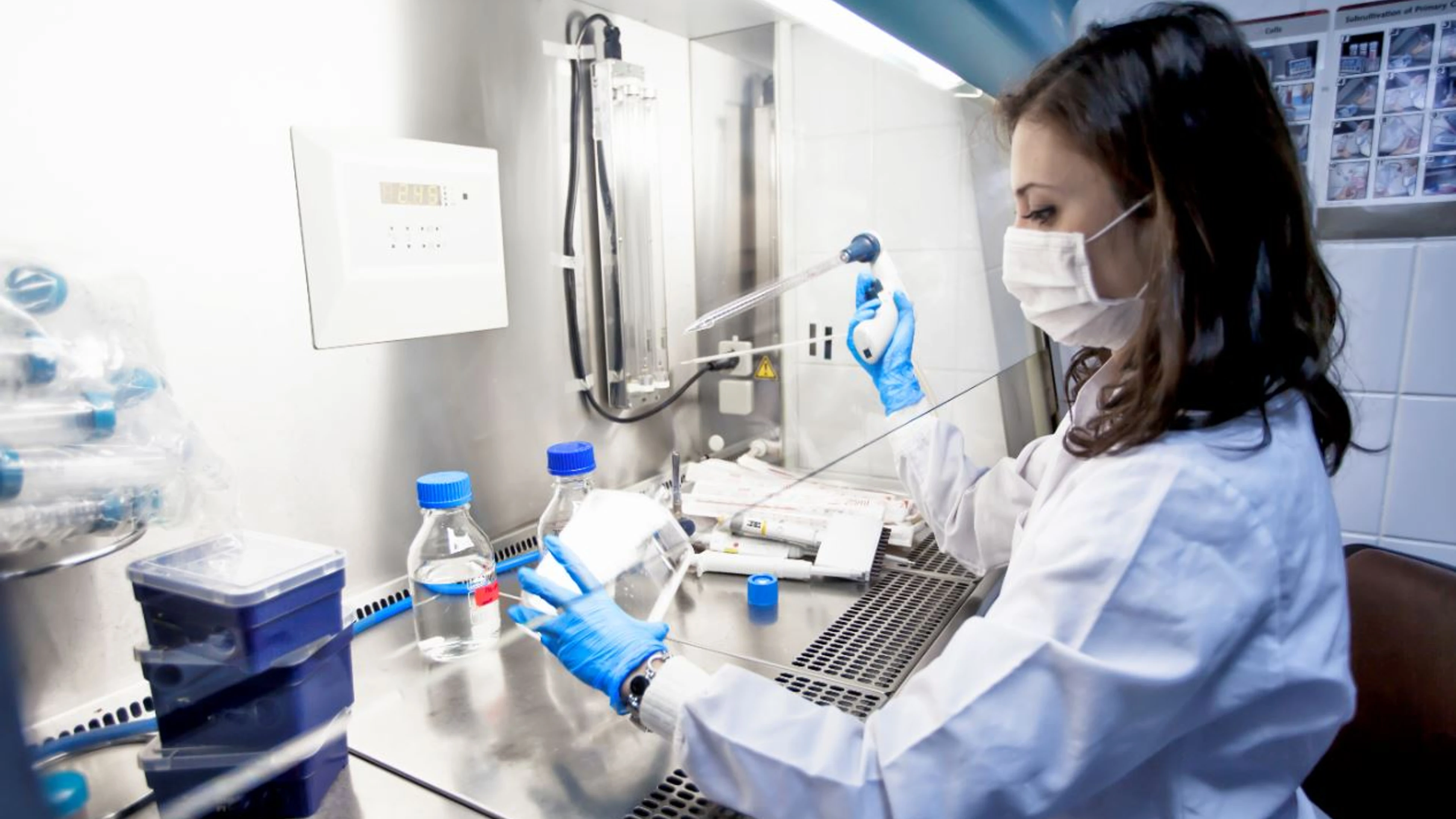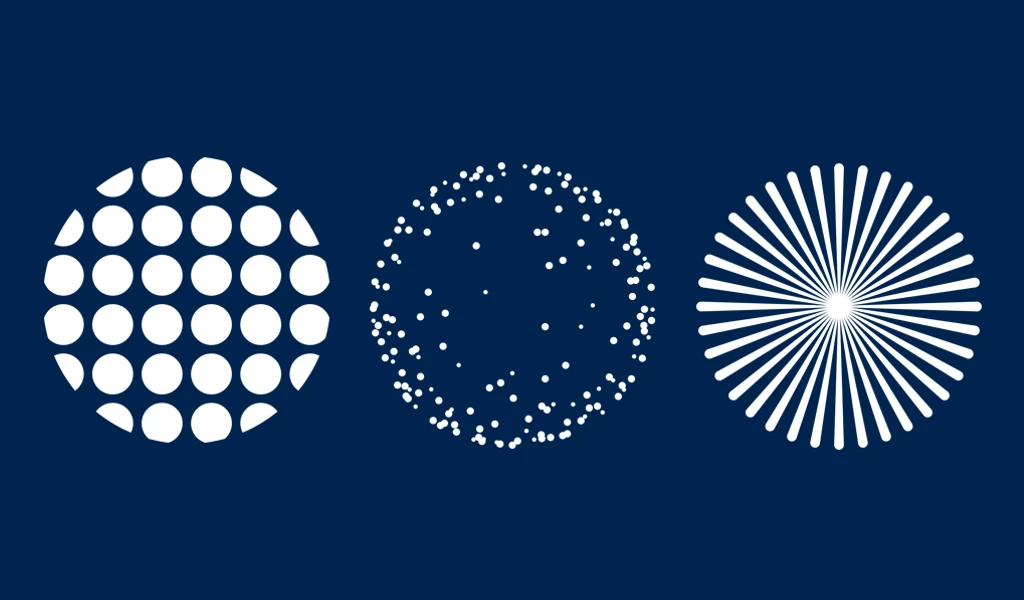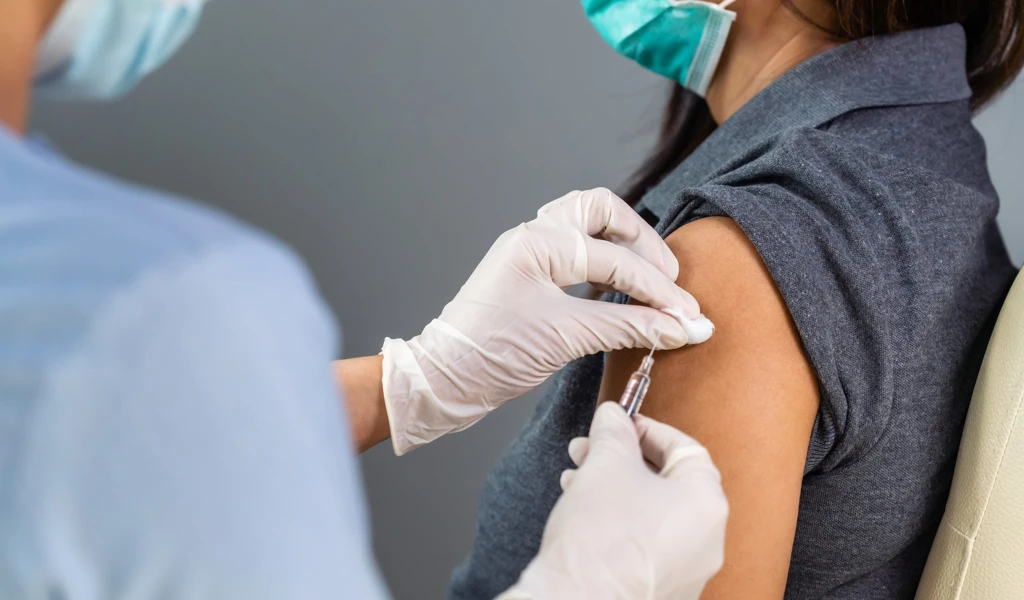CEPI and SK bioscience expand partnership to develop vaccine against COVID-19 variants

Up to $14.2 million of funding will support development of a vaccine against COVID-19 variants of concern
The expanded partnership will also include up to an additional $12.5 million to scale-up manufacturing to hundreds of millions of doses.
OSLO/SEOUL, 10 March 2021—CEPI, the Coalition for Epidemic Preparedness Innovations, and SK bioscience today announced an expanded partnership to develop a vaccine candidate against SARS-CoV-2 variants. CEPI will provide up to $14.2 million to support the adaptation of SK bioscience's recombinant protein vaccine candidate (GBP510) for use against "variants of concern", such as the B.1.351 variant first identified in South Africa. In parallel, CEPI will also be providing up to $12.5 million to help SK bioscience advance their manufacturing methods to full commercial scale, enabling the production of hundreds of millions of doses.
The GBP510 candidate—which is undergoing Phase 1/2 testing in South Korea—is manufactured using a nanoparticle platform. CEPI announced up to $10 million towards the cost of Phase 1/2 trials in Dec, 2020. This funding was part of a joint programme with the Bill & Melinda Gates Foundation to support development of ‘Wave 2' candidates that are differentiated from those already in advanced development and are suitable for use in multiple settings (eg, vaccines that have improved temperature stability, have manufacturing scalability, and also have improved or differentiated immune responses).
Race against viral mutation
The virus that causes COVID-19 is constantly mutating. Variant B.1.1.7 (first identified in the UK) is up to 70% more transmissible than the virus that emerged in Wuhan and has since been confirmed to be associated with an increased risk of hospitalisation and death. Variants B.1.351 and P.1 (identified in South Africa and Brazil, respectively) are even more concerning. They spread rapidly, can reinfect people who have been infected before, and they are rendering our countermeasures—including our vaccines and monoclonal-antibody treatments—less effective. The increased transmissibility of these variants could result in a reversal in the global downward trends in transmission seen in recent weeks resulting in a renewed burden on health systems, and more deaths.
Equitable access key to ending acute phase of pandemic
The rate of viral mutation is a function of the global spread of the virus, so it is imperative to control transmission everywhere. SK bioscience and CEPI are, therefore, committed to enabling global equitable access to COVID-19 vaccines and have agreed that hundreds of millions of doses of this vaccine candidate will be made available to the COVAX Facility for procurement and allocation, if proven to be safe and effective. The COVAX Facility aims to ensure equitable access to COVID-19 vaccines for all countries, at all levels of development, that wish to participate. To date, more than 25 million COVAX doses have already been delivered to over 30 countries, with the aim of distributing 2 billion doses globally in 2021.
The rapid emergence of new COVID-19 variants has huge implications for vaccination campaigns across the world and the speed with which we can end this pandemic. We have now entered a new and much less predictable phase of the pandemic. While there is much we don't yet know about the variants first identified in the UK, South Africa, Brazil, and elsewhere, we know that they pose a grave threat that should not be underestimated.
If we are to secure the gains we have made in the past year, and end the acute phase of this pandemic as soon as possible, we must move with the utmost urgency to control the spread of these variants. Today, CEPI also launches its 5-year plan to substantially reduce, and in the long-term even eliminate, the risk of epidemic and pandemic diseases, including coronaviruses. If we are to achieve this future, we must act now by investing in crucial R&D to optimise our vaccination strategies and technologies.
We are pleased to enter into this partnership with CEPI to research and develop a vaccine against COVID-19 variant. It is expected that we can accomplish development for the vaccine candidate to the new variants of the COVID-19 virus swiftly utilizing the vaccine platform technology in due course. We will keep pursuing our endeavour to overcome the pandemic with responsibility.
---END---
The GBP510 vaccine candidate
The vaccine candidate is a recombinant-protein vaccine based on a novel two-component self-assembling nanoparticle developed at the Institute for Protein Design (IPD) at the University of Washington.
The vaccine is made up of two components, A and B. Component A is a recombinant protein comprised of a portion of the SARS-CoV-2 Spike protein, known as the receptor binding domain (RBD). The RBD is the part of the Spike that enables the virus to bind to and infect human cells.
Component A proteins are then attached to the surface of component B, a "central core" nanoparticle. The combination of these two components results in the optimum exposure of the RBD antigen, which is then recognised by the immune system.
Potential advantages of this candidate include scalability, thermostability, and possible use as a platform to develop vaccines against future unknown pathogens, referred to as Disease X. Additionally, preclinical studies of this vaccine candidate have shown that it induces very high titres of neutralising antibodies.
SK bioscience has advanced the development of their vaccine candidate using its established process platforms and corresponding commercial Good Manufacturing Practice (GMP) capabilities. SK bioscience started Phase 1/2 studies early in 2021.
SK bioscience and CEPI are committed to global equitable access of COVID-19 vaccines and have agreed that this vaccine candidate will be made available for procurement and allocation, if proven to be safe and effective, through the COVID-19 Vaccine Global Access (COVAX) Facility. The COVAX Facility aims to ensure equitable access to COVID-19 vaccines for all countries, at all levels of development, that wish to participate.
CEPI's $3.5 billion investment case — The Urgency of Now. Turning the tide against epidemic and pandemic infectious diseases
The full investment case, published today, may be accessed at https://endpandemics.cepi.net
About CEPI
CEPI is an innovative partnership between public, private, philanthropic, and civil organisations, launched at Davos in 2017, to develop vaccines to stop future epidemics. CEPI has moved with great urgency and in coordination with WHO in response to the emergence of COVID-19. CEPI has initiated 12 partnerships to develop vaccines against the novel coronavirus. The programmes will leverage rapid response platforms already supported by CEPI as well as new partnerships. The aim is to advance COVID-19 vaccine candidates into clinical testing as quickly as possible.
Before the emergence of COVID-19 CEPI's priority diseases included Ebola virus, Lassa virus, Middle East Respiratory Syndrome coronavirus, Nipah virus, Rift Valley Fever virus and Chikungunya virus. CEPI also invested in platform technologies that can be used for rapid vaccine and immunoprophylactic development against unknown pathogens (Disease X).
About COVAX
COVAX is the vaccines pillar of the ACT-Accelerator. It is co-led by CEPI, Gavi, the Vaccine Alliance, and the World Health Organization (WHO) with lead delivery partner UNICEF, working in partnership with developed and developing country vaccine manufacturers, the World Bank, Civil Society Organisations and others. COVAX is the only global initiative that is working with governments and manufacturers to ensure COVID-19 vaccines are available worldwide to economies of all financial means.
About SK bioscience
SK bioscience is an innovative South Korean biopharmaceutical company specialized in the vaccine area. SK bioscience developed the cell-culture based influenza vaccine named SKYCellFluTM prequalified by WHO in 2019, SKYZosterTM, the world's second vaccine for shingles, and SKYVaricellaTM, the world's second WHO prequalified varicella vaccine for chickenpox. By leveraging the company's strengths on cutting-edge vaccine development technologies, SK bioscience has been expanding its R&D portfolio including pneumococcal conjugate vaccine, human papillomavirus vaccine, typhoid conjugate vaccine and non-replicating rotavirus vaccine through in-house development or external partnership with public and private institutions around the globe pursuing global health. For the COVID-19 vaccine response, SK bioscience is undergoing development for its vaccine candidate against SARS-CoV-2 with support from the Bill and Melinda Gates Foundation and CEPI, and using its established development and manufacturing capabilities, it has been cooperating to develop and manufacture AstraZeneca's and Novavax's COVID-19 vaccine candidates.
Media Contacts
CEPI
Email: [email protected]
Phone: +44 7387 055214
SK bioscience Co., Ltd.
Email: [email protected]


